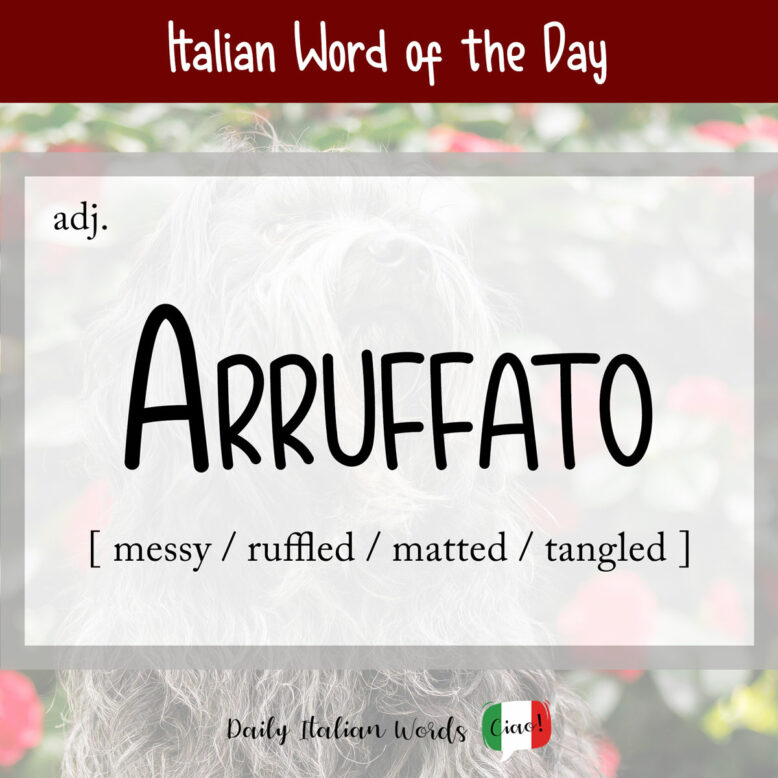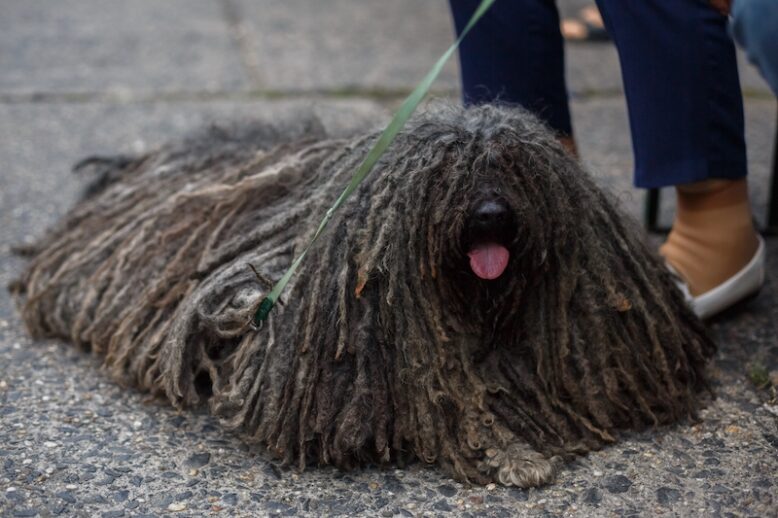Last Christmas, I bought my son three adorable little stuffed owls with the softest fur imaginable. Fast-forward to July, and they all looked like something the cat dragged in. In Italian, the word arruffato perfectly describes the disheveled, ruffled, tangled or matted state of hair or fur, whether it’s on a person, animal, or well-loved plush toy.
arruffato
messy / ruffled / matted / tangled

Being an adjective, it has masculine, feminine and plural forms:
- il pelo arruffato = matted / ruffled / tangled fur
- la pelliccia arruffata = the matted / ruffled / tangled coat
- i capelli arruffati = matted / ruffled / tangled hair
- le pellicce arruffate = the matted / ruffled / tangled coats
Il pelo arruffato del cane doveva essere rasato.
The dog’s tangled fur had to be shaved.
Arruffato is the past participle of the verb arruffare, which has two meanings. The first, as you might have guessed from the adjective, is to ruffle, mess up, or tousle. The second meaning is to bristle, referring to the reaction of fear or anger that causes an animal’s fur to stand on end.
Il gatto ha cominciato ad arruffare il pelo quando ha visto il cane avvicinarsi.
The cat began to bristle when it saw the dog approaching.

Figuratively, arruffato can describe something like a speech or a person’s ideas that are confused, muddled, or overly complex. This figurative use produced the expression matassa arruffata, which refers to a complicated issue with no easy solution. (Matassa means skein in Italian, a term for a length of thread or yarn that has been loosely coiled and knotted.)
The verb arruffare also carries a figurative meaning of muddling or confusing one’s ideas. Just as you might use the expression matassa arruffata to describe a complicated issue, you can also say arruffare la matassa, which means to confuse things further or to make matters worse.
Le spiegazioni confuse del relatore hanno solo arruffato la matassa.
The speaker’s confusing explanations only muddled things further.
Heather Broster is a graduate with honours in linguistics from the University of Western Ontario. She is an aspiring polyglot, proficient in English and Italian, as well as Japanese, Welsh, and French to varying degrees of fluency. Originally from Toronto, Heather has resided in various countries, notably Italy for a period of six years. Her primary focus lies in the fields of language acquisition, education, and bilingual instruction.


